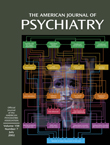The Beef With Atypical Antipsychotics
To the Editor: We recently approached the manufacturers of atypical antipsychotics in the United Kingdom in order to identify a product free from animal materials. All of the atypical antipsychotics contain animal-derived lactose, and risperidone and quetiapine contain bovine-derived magnesium stearate.
Magnesium stearate contains organic acids derived from beef tallow, but it can also be extracted from vegetable sources and be synthetically produced. Lactose is the carbohydrate component of milk and is widely used in the production of capsules or tablets (1).
The use of these materials as excipients is widespread in tablet manufacturing. The World Health Organization recommends that in situations in which products from animals at risk for encephalopathies are not essential, alternatives should be used (2).
Concerns related to the use of animal-derived materials in medications are not restricted to the hypothetical risk of infection with new-variant Creutzfeldt-Jacob disease. Awareness of patient ethnicity, religion, and dietary habits plays a part in drug choice. For example, a Hindu patient may prefer a medication free of bovine-derived products. People with lactose intolerance, of which there are 50 million in the United States (3), should be offered medication free of lactose. Although information about drug constituents can be found from different sources, it is not readily available to prescribers, and patients do not always have access to this information. We acknowledge that in many clinical situations it might be impractical to consider drug constituents. As long as products continue to be produced that contain animal derivatives, physicians have an ethical obligation to inform patients of their presence.
1. Parfitt K (ed): Part 1: monographs on drugs and other ancillary substances, in The Complete Drug Reference, 32nd ed. London, Martindale Pharmaceutical Press, 1999, p 1349Google Scholar
2. World Health Organization: Report of a WHO Consultation on Medicinal and Other Products in Relation to Human and Animal Transmissible Spongiform Encephalopathies. http://www.who.int/emc-documents/tse/docs/whoemczoo973.htmlGoogle Scholar
3. Rusynyk RA, Still CD: Lactose intolerance. J Am Osteopath Assoc 2001; 101(4 suppl, part 1):S10-S12Google Scholar



